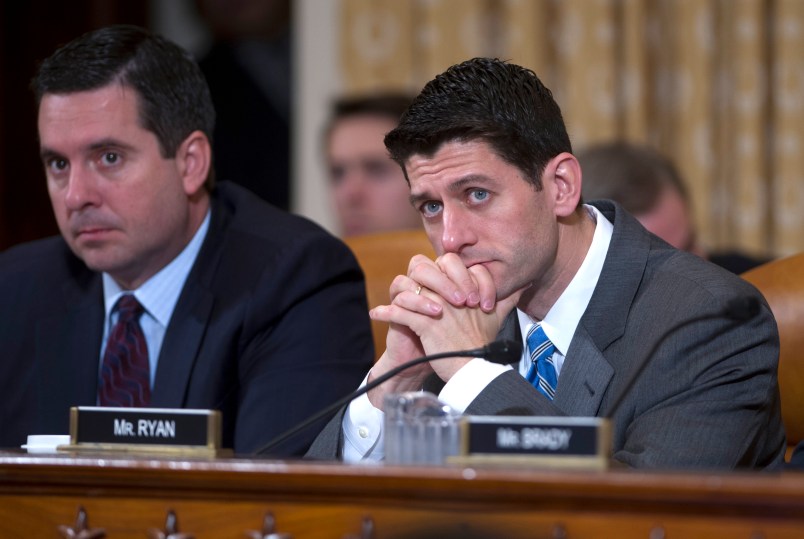The money allocated in the House Republican bill to repeal Obamacare for states to help those with pre-existing conditions pay for health insurance would not provide sufficient funds for that purpose, according to a new report published Thursday by the health consulting firm Avalere.
The American Health Care Act would give states $23 billion to help cover residents with pre-existing conditions: $15 billion through an amendment that calls on states to set up high-risk pools, plus another $8 billion over five years through the most recent amendment to the repeal legislation proposed by Rep. Fred Upton (R-MI). According to Avalere’s calculations, this amount would help cover just 110,000 people with pre-existing conditions each year, a fraction of the 2.2 million people with pre-existing conditions currently enrolled in the individual marketplace.
States would theoretically be able to spend more money from the AHCA’s Patient and State Stability Fund on people with pre-existing conditions. But even if states spent the entire $123 billion allocation for that purpose, just 600,000 individuals with pre-existing conditions would be covered each year, the report found.
An amendment to the AHCA offered by Rep. Tom MacArthur (R-NJ) and backed by the hardline conservative House Freedom Caucus would allow states to apply for waivers from certain Obamacare mandates. States that secure waivers could allow insurers to engage in medical underwriting and increase a person’s premium based on their health status. States granted waivers also would have to set up high-risk pools, which are very expensive.
According to Avalere’s analysis, if a significant number of states allow underwriting, the money allocated to help people with pre-existing conditions afford bigger premiums would not be sufficient.
“Given the amount of funding in the bill, the program can only afford a few small states to opt into medical underwriting,” Caroline Pearson, a senior vice president at Avalere, said in a statement. “If any large states receive a waiver, many chronically ill individuals could be left without access to insurance.”










